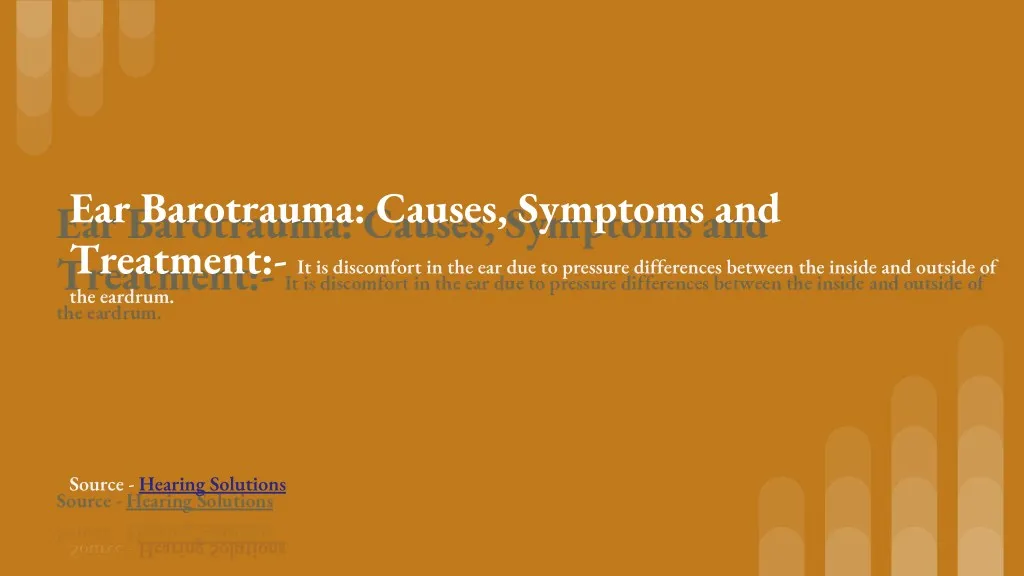

Or, they may need to release the pressure or fluid with a small incision in your eardrum. They may recommend inserting small pressure equalization tubes or a balloon to help dilate your eustachian tubes. If your ears fail to open, or if you are experiencing persistent pain in your ears, seek the help of an ENT (ear, nose, and throat) specialist, or otolaryngologist. Extended use of decongestant nasal sprays can also cause more congestion than relief, and even result in a type of addiction. However, if you are pregnant, or have heart disease, high blood pressure, irregular heart rhythms, thyroid disease, or excessive nervousness, consult your physician before using these medications. Over-the-counter nasal sprays or decongestants can also help air travelers to shrink the membranes and help the ears pop more easily. If you have allergies, take your medications at the beginning of your flight. You and your children should avoid sleeping during descent because swallowing may not occur often enough to keep up with changes in air pressure. Plus, babies cannot intentionally pop their ears, but sucking on a bottle or pacifier can help. You’ll know if it worked when you hear a pop, and your ears feel less plugged.īabies and children are especially vulnerable to ear blockage because their eustachian tubes are narrower than in adults. You can also try pinching your nose, taking a mouthful of air, blowing gently (not forcefully) against your pinched nose, then swallowing. Yawning, chewing gum, or sucking on hard candy can help, especially just before take-off and during descent. The simplest way to help clear your ears-particularly when flying-is to swallow. Also, any situation in which rapid altitude or pressure changes occur, such as air travel, riding in an elevator, diving to the bottom of a swimming pool, or scuba diving, can affect proper function of the eustachian tube. A stuffy nose leads to stuffy ears because the swollen membranes in the nose can extend into the eustachian tube and block it.

The most common cause of eustachian tube blockage is the common cold, but sinus infections and nasal allergies are also usual suspects. The eustachian tube is a membrane-lined tube about the width of a pencil lead that connects the back of the nose with the middle ear and helps maintain balanced air pressure on both sides of the eardrum. The common cold, sinus infections, and nasal allergies can also interfere because swollen membranes in the nose can extend into the eustachian tube and block it (see “What Causes Barotrauma?” below). This stretches the eardrum and causes pain and occasionally fluid. When the eustachian tube in your middle ear is blocked due to altitude or pressure changes (sometimes called barotrauma), air cannot be equalized, and a vacuum occurs. While they are usually minor annoyances, sometimes they can cause significant symptoms. Ear problems are one of the most common medical complaints of airplane travelers and divers.


 0 kommentar(er)
0 kommentar(er)
